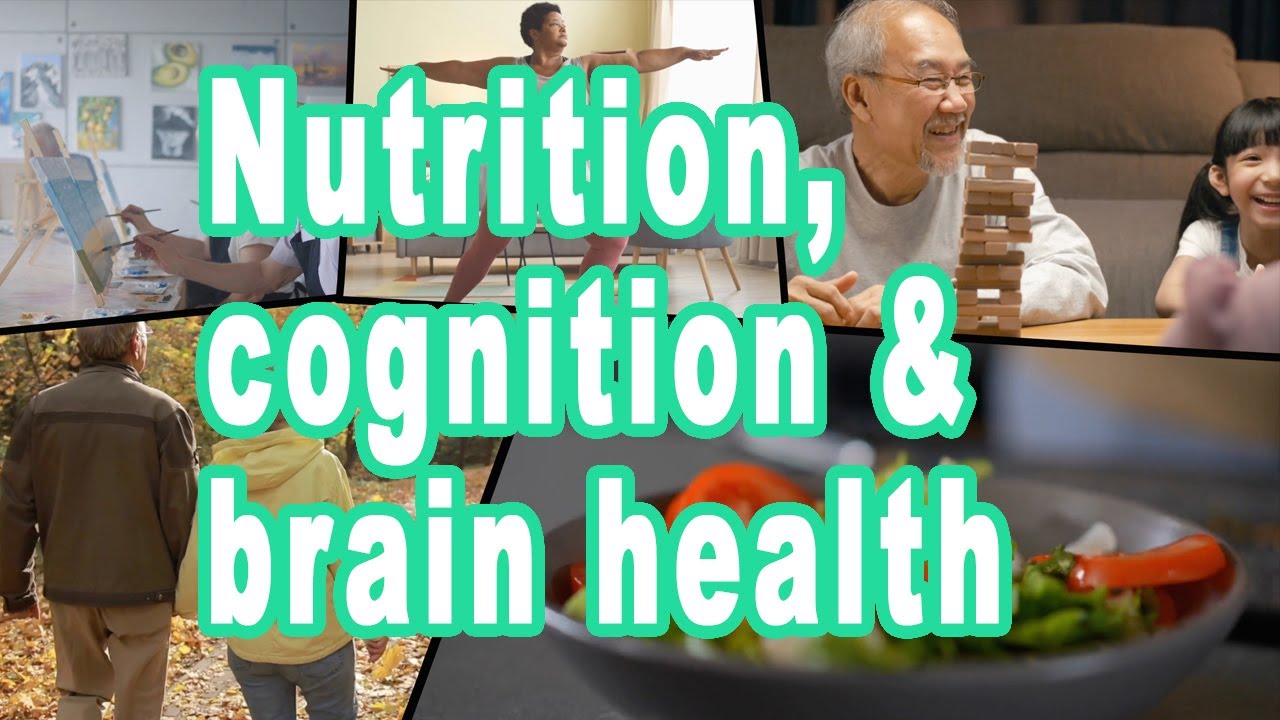Nutrition for Optimal Brain Health 🧠
Summary
TLDRThis script explores the critical connection between diet and brain health, emphasizing that what we eat directly impacts cognitive function. It highlights the importance of a balanced diet rich in brain-boosting foods such as avocados, blueberries, broccoli, fatty fish, and green leafy vegetables, which provide essential nutrients for optimal brain performance. The speaker also discusses the role of prebiotics, probiotics, antioxidants, B vitamins, iron, zinc, and the significance of nutrients like omega-3 fatty acids. Encouraging self-awareness and mindful eating, the script challenges listeners to integrate new brain-healthy foods into their diet and observe the effects on their cognitive abilities.
Takeaways
- 🧠 Your brain is an energy hog, consuming 20% or more of your body's energy, emphasizing the importance of diet for brain function.
- 🥑 Foods like avocado, blueberries, and broccoli are considered 'brain superfoods' and are beneficial for cognitive health.
- 🌱 Cruciferous vegetables and green leafy vegetables are good for the brain, highlighting the importance of a varied diet.
- 🍳 Choline, found in eggs, is important for cognitive health, suggesting the role of animal products in brain nutrition.
- 🐟 Omega-3 fatty acids from fatty fish, walnuts, and flax seeds are essential for cognitive function and memory.
- 🍓 Antioxidants, such as berries and dark chocolate, help combat oxidative stress and reduce cognitive decline.
- 🌾 B vitamins, found in whole grains, legumes, and leafy vegetables, play a role in producing brain chemicals affecting mood and other functions.
- 🥜 Iron, zinc, and nutrients from lean meat, pumpkin seeds, and nuts support neurotransmission and cognitive clarity.
- 💊 Supplements like vitamin D and creatine can be beneficial for brain function, but it's important to consult with a nutritionist first.
- 🌈 The speaker encourages a colorful diet rich in antioxidants, suggesting that color can be an indicator of nutrient density.
- 📝 The script challenges the listener to keep a food diary and be conscious of food choices, reflecting on how different foods affect energy, mood, and cognitive function.
Q & A
What is the main message of the video script about our diet and brain function?
-The main message is that what we eat directly impacts our brain function, emphasizing the importance of a well-balanced diet for cognitive health and suggesting that certain foods can act as 'cognitive fuel'.
Why is the brain described as an 'energy hog' in the script?
-The brain is called an 'energy hog' because, despite being only 2% of body mass, it consumes approximately 20% or more of the body's energy, highlighting its high energy demands.
What are some of the 'brain superfoods' mentioned in the script?
-The script mentions avocados for their monounsaturated fats, blueberries (referred to as 'brain berries'), broccoli, cruciferous vegetables, eggs for choline, green leafy vegetables like kale and spinach, and fatty fishes like salmon and sardines.
How does the speaker relate the concept of 'gut-brain axis' to diet?
-The speaker suggests that the foods we eat, especially those rich in prebiotics and probiotics, can influence the gut-brain axis, which is the connection between our digestive system and brain health.
What role do antioxidants play in brain health according to the script?
-Antioxidants, such as those found in berries and dark chocolate, are neuroprotective and help combat oxidative stress, which can reduce cognitive decline.
Why is the speaker cautious about recommending specific supplements or diets without consulting a professional?
-The speaker emphasizes the importance of individual dietary needs and the potential for different foods to affect people differently, which is why they recommend consulting with a healthcare professional or nutritionist.
What is the significance of omega-3 fatty acids in brain health as discussed in the script?
-Omega-3 fatty acids are essential for cognitive function and memory, and they can be obtained through fatty fish, walnuts, and flax seeds.
What is the 'Quick Mind' product mentioned in the script and why was it created?
-The 'Quick Mind' product is a nootropic line created by the speaker's team to provide a user-friendly and high-quality supplement for better focus, brain energy, mood, and overall cognitive function.
Why does the speaker recommend being conscious of food choices and integrating new brain-healthy foods into one's diet?
-The speaker encourages being conscious of food choices to nourish the brain with intention, which can lead to improved cognitive function, clarity, and vitality.
What is the exercise suggested by the speaker for the next week to improve understanding of the impact of diet on brain health?
-The exercise involves keeping a food diary, integrating at least three new brain-healthy foods into meals, and reflecting on changes in energy, mood, focus, and cognitive function as a result of different foods.
How does the speaker compare the brain to a luxurious car and what does this analogy imply about our responsibility to care for it?
-The speaker compares the brain to a luxurious car to emphasize that it is a valuable and essential part of our lives that we must take care of throughout our lifetime, just as we would maintain a valuable car.
Outlines

This section is available to paid users only. Please upgrade to access this part.
Upgrade NowMindmap

This section is available to paid users only. Please upgrade to access this part.
Upgrade NowKeywords

This section is available to paid users only. Please upgrade to access this part.
Upgrade NowHighlights

This section is available to paid users only. Please upgrade to access this part.
Upgrade NowTranscripts

This section is available to paid users only. Please upgrade to access this part.
Upgrade NowBrowse More Related Video

Cervello e intestino - Superquark 18/07/2018

Unlocking Brain Growth with Exercise | Louisa Nicola

A Brain Food Prescription from the Farmacy: Drew Ramsey at TEDxBloomington

TEDxOrangeCoast - Daniel Amen - Change Your Brain, Change Your Life

Linking nutrition, cognition, and brain health

Change your diet, extend your life | Dr. Morgan Levine
5.0 / 5 (0 votes)